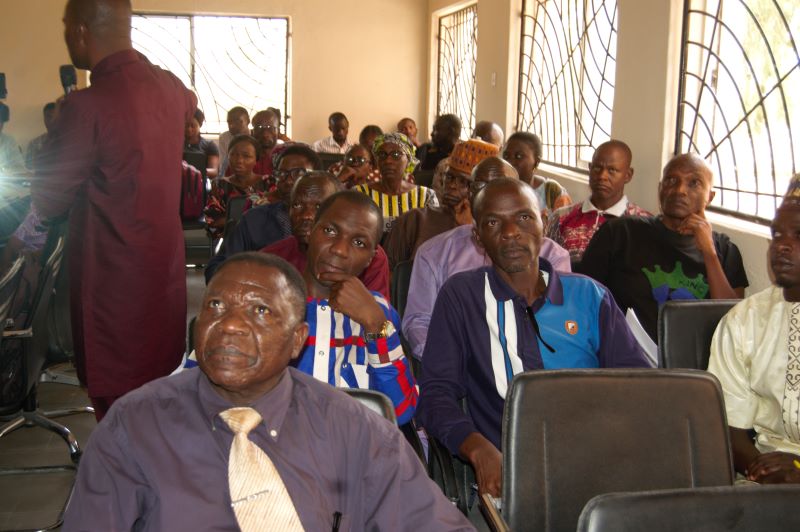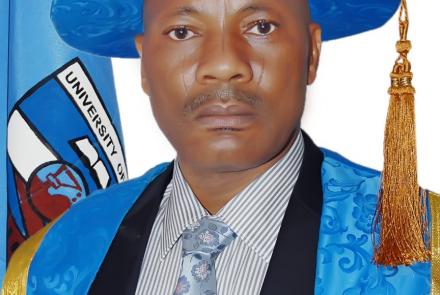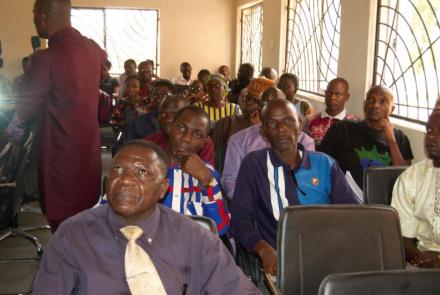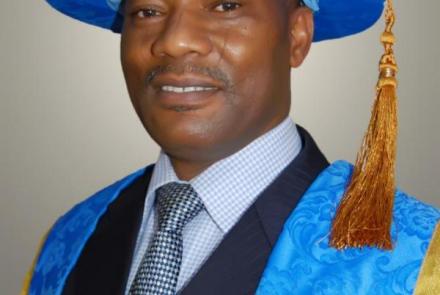Unijos Research Centre to Provide Support to Postgraduate Students
UNIVERSITY OF JOS
(OFFICE OF THE VICE-CHANCELLOR)
INFORMATION, PUBLICATIONS, PUBLIC RELATIONS & PROTOCOL DIVISION
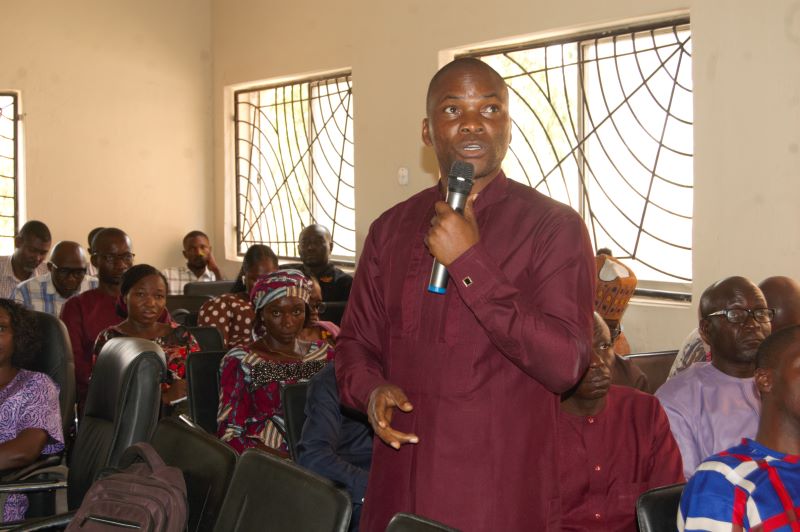
PRESS RELAEASE
UNIJOS TETFUND CENTRE OF EXCELLENCE IN FOOD SECURITY TO PROVIDE RESEARCH SUPPORT TO POSTGRADUATE STUDENTS
The University of Jos Tertiary Education Trust Fund (TETFUND) Centre of Excellence in Food Security says the Centre is set to support Students who utilize the power of technology to create innovations and solutions that address some of the world’s most pressing problems through cutting edge Research. Director of the Centre, Professor Paul Amaza stated this during a Public Lecture the Centre organized for Postgraduate Students of the University in collaboration with Arifa Innovation Platform at the Innovation Hub of the Centre in the University’s Naraguta Campus.
Welcoming participants to the training, Professor Paul Amaza said the capacity building programme tagged “Fit-for Purpose Action Research: Exploring the Knowledge Economy” aims to ignite critical thinking and innovation among Postgraduate Students of the University while challenging conventional norms and enabling them to explore new horizons.
The Director further said, the programme provides a forum for Scholars, Researchers, and Students alike to develop exceptional ideas, contemporary Research findings in line with emerging trends with focus on disseminating Research outputs for adoption by the private sector including farmers, industry players and other end-users.
He said, the adoption of such Research outputs will in turn contribute towards enhancing food security and improved livelihoods in the North-Central States and other parts of Nigeria with emphasis on addressing the diverse challenges that affect food security including low crop yields and poor livestock productivity. Other challenges identified are poor access to Agricultural markets, low value addition to Agricultural produce, land degradation, climate change, pests and diseases as well as inconsistent Government policies.
Professor Amaza commended the facilitators for their initiative and revealed that those Students who will be supported are required to submit their project topic and registration details to the TETFUND Centre of Excellence in Food Security before publishing their papers.
In the lead paper presentation, Dr. Nanvyat Nannim explained that open Science involves making Research data, methods, and findings freely available to the public thereby facilitating collaboration and transparency in the Scientific community that could help to accelerate the pace of Research. This would enable Researchers build on each other’s work more easily leading to reduction in duplication and plagiarism as it allows Researchers to publish in multidisciplinary journals with open access, open peer review, and indexed journals in open databases.
Dr. Nannim stressed that interdisciplinary Research is essential for addressing complex problems that require diverse perspectives and expertise, adding that by combining the insights and methods of different fields, Researchers can generate new insights and solutions that would not be possible with a single-discipline approach.
He said, “with climate change and other environmental issues becoming increasingly urgent, Researchers are turning their attention to developing sustainable solutions to the world’s problems” and “this includes everything from developing new materials and technologies to reduce greenhouse gas emissions to developing sustainable Agricultural practices that can feed the world’s growing population without damaging the environment.”
In another presentation titled “Statistical Methods: Exploring the Knowledge Economy,” Dr. Simi Goyol of the Faculty of Environmental Sciences, University of Jos explained that food security is a situation where all people enjoy physical, social, and economic access to sufficient, safe, and nutritious food that meet their food preferences and dietary needs at all times, for an active and healthy life.
According to her, effective use of Research results helps to solve real life problems adding that food security decisions must be backed by statistical data so as to avoid guesswork or mere intuition because without statistics, much of the groundbreaking Research in the Sciences would be impossible.
The Lecture was attended by Postgraduate Students from various Departments in the University, Staff of the Centre as well as Staff from across other Faculties.
Signed
Abdullahi Abdullahi
Senior Deputy Registrar (Information & Publications)
- Log in to post comments


